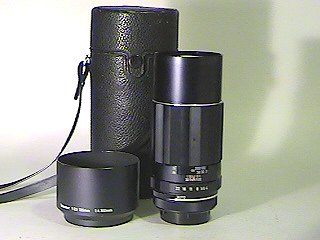Specifications
Pentax Super-Takumar
200mm f/4.0 SM
| Minimum Aperture |
f/22 |
| Lens Element |
5 |
| Diaphram |
Fully Automatic with
depth of field preview setting
Stop-down metering on Spotmatic F, ES, ESII,
M42 screw mount TTL cameras |
| Minimum Focusing Distance |
2.5 meters/8.2 feet |
| Angle of View |
12.5 degrees |
| Weight |
550 grams/19.3 ounces |
| Length |
5.4 inches |
| Filter Size |
58mm |
| Lens Cap Size |
60mm |
| Price when new |
$239.50 |
The 200mm lens is considered
to be a medium telephoto lens. This is good for wildlife, sports and news action
photography. It is light enough for hand-held telephoto shots. The lens
is compact and lightweight and uses the same sized filter and caps as the 24mm f/3.5.
Specifications| Construction | Infra-red Index
Return to
Pentax Lenses

Download the
Honeywell Pentax Takumar Lens Manual

Download
Takumar Interchangeable
Lenses Operating Manual

Download Asahi
Pentax Takumar Interchangeable
Lenses Operating
Manual (early version)
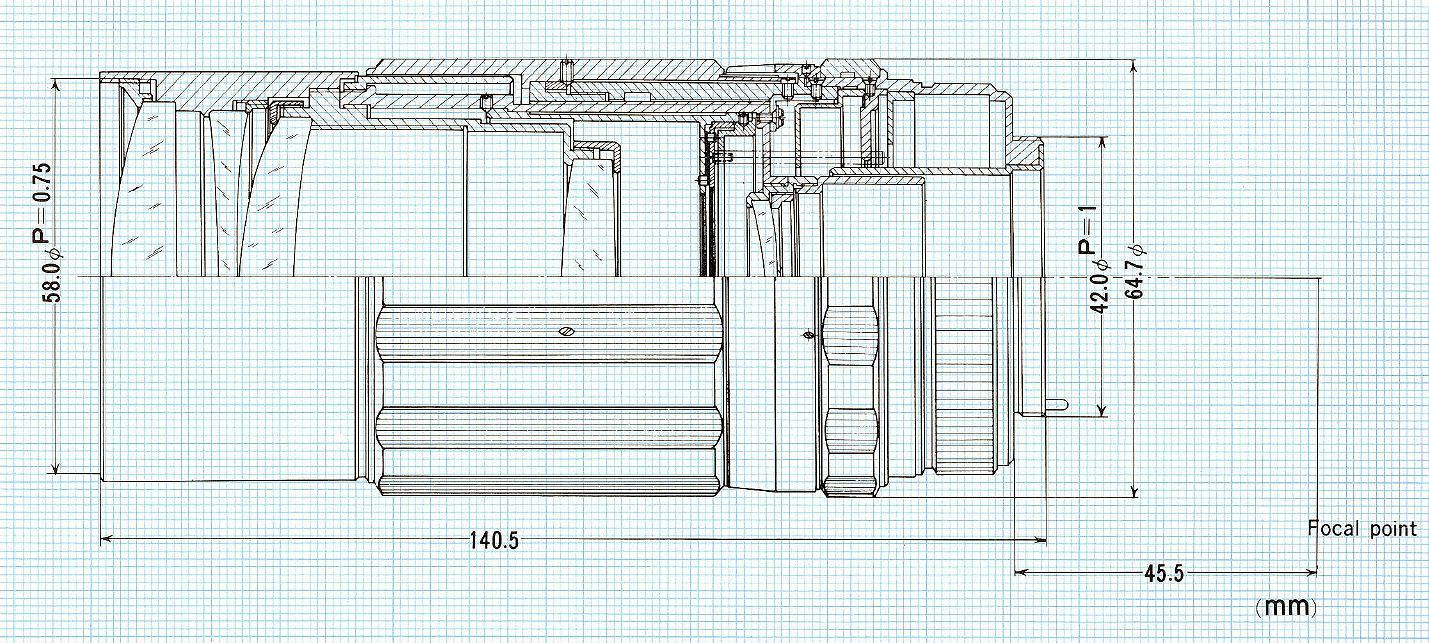
Features.
This powerful telephoto lens has been
designed with hand-held photography in
mind. Length and weight has therefore
been kept to a minimum, and special
emphasis has been given to camera
balance. The low distortion makes
for a clear-cut image in the viewfinder
and excellent color photography
characteristics. All in all this
lens is the perfect answer for
powerful telephoto enthusiasts who wish
to avoid the tripod.
Main
uses. The powerful'telephoto
effect of 200mm lenses brings distant
objects to close-up range and
effectively brings out those dwarfed
backgrounds. This lens is thus
ideally suited to scenics and
fast-action sports, and is at home in
all telephoto fields.
| Focal length |
200mm |
Minimum
aperture |
F22 |
| Maximum aperture |
F4 |
Dimensions |
|
| Lens elements |
5 in 5 groups |
Maximum
diameter
|
64.7mm |
| Diaphragm |
Fully automatic |
Length |
136mm |
| Angle
of view |
12° |
Weight |
1.23
lb (558g) |
| Minimum focusing
distance
|
8.2ft.
( 2.5m) |
Filter size |
58mm |
Return to
Pentax Lenses
Features
Construction
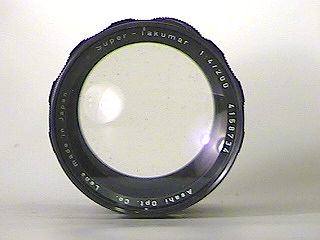 |
Asahi Optical began
manufacturing specialized lenses in 1919, and has been producing lenses for general
photography since 1932, twenty years before the Pentax, the first SLR camera from Japan -
was manufactured.
Painstaking hand craftsmanship, the highest quality raw materials and the most advanced
technological know-how are combined in the manufacture of each Super-Takumar.
In the beginning, lens design required logarithmic tables, slide rules- and great
patience. It often took three competent designers several years of steady work to complete
the computation of a single 4-element lens. Today, Asahi utilizes the most modern
electronic computer equipment which performs extremely complicated calculations very
rapidly and with great accuracy. |
Fine optics
alone cannot make a superior lens; the mechanical components are equally important. Lens
barrels of Super-Takumar lenses are precision machined for accurate positioning of all
elements. Tolerances are so tight you have to break a vacuum to disassemble some elements.
Each Super Takumar has dust and moisture-proof seals and a special diaphragm damper that
cuts down on wear, vibration and bounce so you get consistent aperture openings.
|
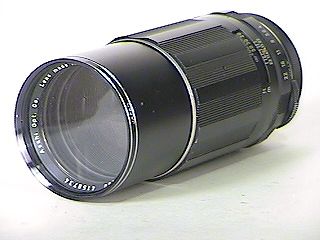 |
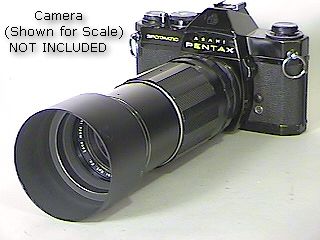 |
All mechanical components
are precision machined to microscopic tolerances. Specially lubricated, wear-resistant
metals assure consistently accurate apertures year after year. Screw mounts are the most
precise method of holding a lens firmly in place. Perfectly matched threaded mountings on
Super- Takumar make changing lenses quick and easy - even in the dark. |
Specifications
| Construction | Infra-red Index
Return to
Pentax Lenses
|
Infra-Red Index
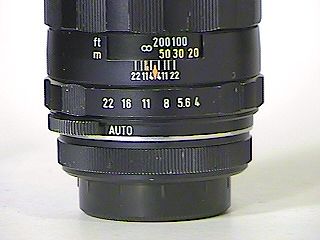 |
When taking infra-red
photographs, the focal point shifts slightly, and therefore, the lens must be extended
accordingly. The difference varies depending on the lens, and it is indicated by the small
"R" index or short orange line. In infra-red photography, use this infra-red
index. First, focus your lens on your subject. Determine the lens-to-subject distance from
the distance scale. Then match your "R" mark by turning the distance scale
accordingly. If your subject is in focus at infinity, turn the distance ring and move
infinity mark to the "R" index. Also, remember to use an R2 (red) or O2 (orange)
filter and special infra-red film in this special photography. |
Specifications
| Construction | Infra-red Index
Return to
Pentax Lenses
|

Download the
Honeywell Pentax Takumar Lens Manual

Download
Takumar Interchangeable
Lenses Operating Manual

Download Asahi
Pentax Takumar Interchangeable
Lenses Operating
Manual (early version)
|
